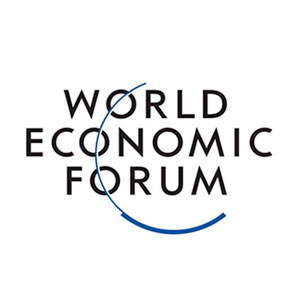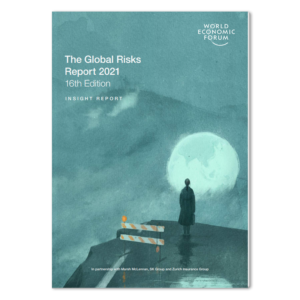
Why we need global rules to crack down on cybercrime
Cybercrime is high on the agenda of nation states, corporations and international organizations everywhere.

Cybercrime is high on the agenda of nation states, corporations and international organizations everywhere.

It can seem like climate change affects all communities equally

The world is confronting multiple intersecting geopolitical events with highly unpredictable consequences

Agriculture has come a long way in the twenty-first century.

Ilona Szabó de Carvalho, Co-Founder and President, Igarapé Institute, has spent most of her life working to build coalitions for collective action and says it will take broad and diverse networks of people to tackle the biggest challenges in the world.

Data privacy exchanged for frictionless convenience is being compromised, stolen and leaked with disturbing regularity.

This is one of a series of articles written by Young Global Leaders with action-oriented ideas to improve the state of the world by 2030

Robert Muggah contributed to the annual Global Risks Report.

The COVID-19 pandemic is generating monumental challenges for most governments, corporations and societies, both online and off.

Globalization is the most progressive force in the history of humankind.

While the coronavirus pandemic is ravaging around the globe, we will continue to experience unprecedented urbanization in the coming decades.

Around the world, responses to the first and second waves of the COVID-19 pandemic are understandably focused on reducing infections and fatalities.

The digital economy has finally arrived.

Even before the tumultuous arrival of COVID-19, many parts of the world were suffering from dangerous polarization and division.

The Amazon Basin is approaching a dangerous tipping point.

During the first half of 2020 when more than two-thirds of the world’s population was in lockdown, many of us were transfixed by a map.

The first wave of the COVID-19 pandemic may be receding in some parts of Western Europe, East Asia and North America, but it’s rapidly taking-off in Latin America, Africa and South Asia.

In every crisis it is the poor, sick, disabled, homeless and displaced who suffer the most.

Published in World Economic Forum By Robert Muggah The world is entering a volatile and unstable new phase. Scientists are increasingly confident that the COVID-19 pandemic threat will persist, possibly for years. The global economy is headed for an economic nose dive that could rival, even exceed, the

Published in World Economic Forum By Robbert Muggah When it comes to infectious disease outbreaks, cities are dual-edged. To be sure, cities are a big part of the problem. They intensify the spread and transmission of infectious disease through increased human contact. Today, roughly 4

Where a person is born and lives correlates with their overall life chances. Unsurprisingly, people living in environments characterized by high levels of economic and social inequality tend to be more exposed to violence and victimization than those living elsewhere.

Violence has always been one of humanity’s most serious global challenges. Hundreds of millions of men, women, and children have been killed or maimed by armed conflict, crime, extremism, and sexual and gender-based violence. Not only does violence exact a massive social and economic toll, it depreciates human capital and undermines important civic and social institutions.

We are facing a climate emergency. More than 11,000 of the world’s scientists and successive reports issued by the International Governmental Panel on Climate Change say the evidence of human-induced global warming is irrefutable.

Violence has always been one of humanity’s most serious global challenges. This is because for most of history, we were natural born killers. Hundreds of millions of men, women and children have been killed or maimed by armed conflict, crime, extremism and sexual and gender-based violence.

Make no mistake: the world is in the early stages of a techno-war against city governments and urban infrastructure. And while some cities have bolstered their capabilities to patch their vulnerabilities, they are entirely unprepared for the scale of cyberthreats that are coming.

Cities are stepping-up to confront many of the world’s biggest existential challenges – especially climate change. One reason is that cities have always been where the future happens first; spaces that cultivate creativity, resourcefulness and innovation.

News coverage the catastrophic impacts of global warming are everywhere. From the Arctic to Brazil, the house is clearly on fire.

The future feels more threatening and ominous than ever. The sense of doom and gloom is deepening, not least in the West.

All coastal cities are facing sea-level rise, but some will be hit harder than others. Asian cities are in for a particularly rough ride.

O Instituto Igarapé utiliza cookies e outras tecnologias semelhantes para melhorar a sua experiência, de acordo com a nossa Política de Privacidade e nossos Termos de Uso e, ao continuar navegando, você concorda com essas condições.

